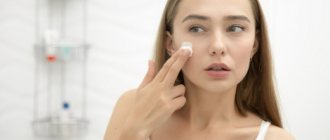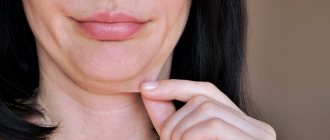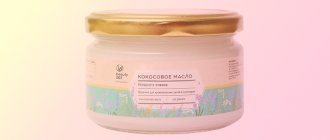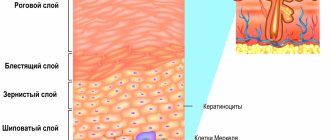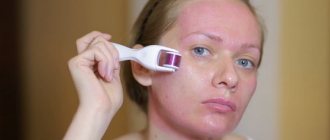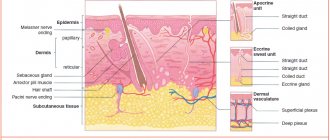Dry and dehydrated skin are not the same thing. Dry skin is a skin type. Such skin does not retain moisture well, which is caused by a genetic predisposition. You won't be able to get rid of dry skin once and for all, but making it look healthy is quite simple: use moisturizing creams and masks.
Dry skin can often be confused with dehydrated skin, however, the latter is characterized by pronounced wrinkles and noticeable blood vessels.
Dehydrated skin is a skin condition. Dehydrated skin can be any type. This type of skin has a broken lipid barrier and is characterized by a feeling of tightness and flaking.
The reasons may be:
- lack of water in the body;
— improper skin care (use of alcohol-containing products, abuse of peelings and scrubs, washing with soap and water);
- irregular sleep;
- seasonal vitamin deficiency or unbalanced diet;
- overwork;
- dry air and excessive passion for tanning and solarium;
— bad habits (drinking alcohol, smoking, stress).
Signs of skin dehydration
It's easy to understand that your skin is dehydrated. The following signs give it away:
- Feeling of tightness - especially after washing. I want to apply the cream as quickly as possible, but it often doesn’t help much;
- Peeling - at first it is difficult to notice, since the scales are small. But over time they will increase. And yes, don’t even think about covering them with foundation. Firstly, it is useless - cosmetics will only emphasize the flaw. And secondly, you will dry out your skin even more;
- Wrinkles are special in that they disappear after applying the cream.
Does at least one sign match? Then it's time to take rescue measures. Proper nutrition, care and restoration of water balance is your plan for the near future (or better yet, forever).
Main signs of oily skin
First, you need to determine whether you are the unfortunate owner of oily, dry skin. Here are the main signs:
– it is dull, loose, gray in color;
– pores are enlarged and clog quickly;
– any moisturizer provokes the appearance of comedones (blackheads) and inflammation;
– alcohol-containing and alkaline tonics and foams instantly tighten the skin and cause peeling.
What is the difference between dry skin and dehydrated skin?
Many people confuse dehydrated facial skin with dry skin. But these are two completely different types. Dryness is a constant condition given to man by nature. You just have to learn to live with this. But dehydration is a temporary period that comes due to a lack of water in the body. Any skin can be dehydrated, even oily.
To finally make sure that dryness is a feature of the body or a temporary phenomenon, do a test. Squeeze the skin into a fold. If a soft fold remains, the skin is dry. Quickly smoothing the affected area indicates dehydration.
Dehydration makes the skin sensitive and capricious:
- You feel tight, but you still look like a buttery pancake. The fact is that when sebum (sebum) evaporates, the body activates its production. So we get - dryness, itching, enlarged pores, rashes and shine. Those with oily skin types face this, but normal skin can also pull out a similar trick in a stressful situation.
- The skin stops getting rid of dead cells. This requires energy, and it is all aimed at eliminating dehydration. As a result, the dermis also becomes dull.
- The skin also fails to provide protection. Pimples, redness and irritation appear. If this happens due to habitual care, then this is the first sign of a problem.
Oily dehydrated skin: causes and signs
Dehydration or dehydration is a skin condition similar to acne or rosacea. Both dry and oily skin can experience a lack of moisture. This usually manifests itself in the form of local peeling and the appearance of a fine network of wrinkles.
Improper care is the source of trouble for many clients. People with oily skin often use alcohol-based products and enjoy deep cleansing their faces. Other negative factors that aggravate the situation are UV radiation, dry climate, poor diet, taking antibiotics, diuretics and laxatives, smoking and alcohol addiction. The older we get, the worse this affects our skin. In adolescence, when the body undergoes hormonal changes and a lot of sebum is secreted, this problem does not arise. Everything changes after 25 years, when the production of hormones and the activity of the sebaceous glands decrease.
Under the influence of strong external and internal factors, the water-lipid mantle of the skin is gradually destroyed. At some point, it begins to lose moisture more, and then a feeling of tightness and dryness appears. At the same time, the main problems - enlarged pores, inflammation and signs of post-acne - remain. Skin color becomes dull and its texture becomes uneven. By the end of the day, the foundation often runs off, leaving only dry pigment on the skin.
Applying an intensely moisturizing toner
Causes of facial skin dehydration
Most often, dehydration appears due to a violation of the integrity of the hydrolipid mantle (this is such a thin film on the surface of the dermis). Its main function is to retain water in the skin. The violation prevents her from fully performing her work. This happens for a number of reasons.
- Environment - strong wind, cold or heat. Air conditioning and central heating. The body compensates for the lack of moisture with its own resources. But there may be few of them and soon this will be reflected in the appearance. That is why winter and summer are especially dangerous periods for our skin. But in the spring, problems manifest themselves most of all - the body simply gets tired after three months of winter. Pay attention to passersby at this time of year. Everyone is tired, with dull faces. Therefore, there will be little proper care here. It is necessary to fight spring vitamin deficiency.
- Improper care - aggressive cleansers (those with oily skin are especially fond of using them), cosmetics that do not match the skin type, age and season. Stop mindlessly buying everything you see. Pay attention to the ingredients and labeling of products.
- Lack of clean water - are you drinking enough water every day? Many people forget about the need to drink clean water, replacing it with juices, tea and coffee. But these drinks only dry out the body even more. 1.5-2 liters of water will help avoid dehydration. If you play sports or it’s very hot outside, you need more water.
- Age - we are not getting any younger and this is reflected in our appearance. Over the years, the skin reduces the production of hyaluronic acid, resulting in wrinkles and a feeling of tightness. At the same time, it is dehydrated skin that ages faster. It's a vicious circle. It needs to be broken. Age-appropriate care will help with this.
Cream for dehydrated facial skin
A quick solution to the problem can be a good moisturizer for dehydrated skin, Panthenol EVO, which is designed for special care and is doubly suitable for dehydrated skin.
Firstly, this cream is equally good for both oily and dry dehydrated skin, since its main component is Dexpanthenol. This unique component is capable of restoring problem areas of the skin in the shortest possible time, promoting the restoration of damaged epidermal cells.
Secondly, it works at the cellular level: when it enters the body, panthenol easily transforms into pantothenic acid and is directly involved in fat and carbohydrate metabolism, normalizing cellular metabolism.
Care for dehydrated skin
Have you noticed that your skin has become dehydrated? Act immediately!
- First of all, avoid soap, alcohol toners, harsh scrubs, clay masks, cosmetics with a high acid content, and washing with cold or hot water. These products dry out the skin and cause excess moisture to be released from the body. And we need to fill it up.
- Then buy a treatment that suits your type. Stop tormenting oily skin with alcohol-containing cosmetics, dry skin with low-quality fatty creams, and smearing normal skin with whatever you have to. Read the ingredients and give preference to natural ingredients.
Stop lights for dehydrated skin
If your skin is dehydrated, you should avoid washing with soap, harsh scrubs and clay masks. You should also temporarily refrain from contrast showers and going to the bathhouse.
In addition, it is extremely important to choose the right care products. The dermatologist recommends avoiding cosmetics that contain “irritating” ingredients, such as alcohols and aggressive surfactants (surfactants).
How to achieve a beautiful shade without harming the skin? Safe tanning rules
Also, do not neglect sunscreens - they have a preventative effect and will help prevent dehydration.
Moisturizing different skin types
Even oily skin needs hydration. But you need to choose your means wisely. An indicator that the cream contains enough water and hydrofixing agents is its light texture.
Dry
Dry dermis becomes the easiest to become dehydrated. She already lacks moisture, so stressful situations can “take away” the last remnants. Therefore, it requires not just hydration, but also nutrition and restoration. You can safely turn to fatty creams and vegetable oils. But don't overdo it.
Fat
Girls with this type need to select a cream with special care. On the one hand, it should moisturize and nourish the affected skin, on the other, regulate the secretion of sebum and mask oily sheen. Hydrolates and light oils will help you.
Normal
Although this is the most unpretentious type, problems still arise from time to time. To get rid of dehydration, start making deeply nourishing masks and don’t forget to drink enough water. This way you will quickly restore your normal state.
Combined
Do you have a combination type? Then it is best to purchase 2 products. On the cheekbones - for normal skin, and on the T-zone with a mattifying effect. You will get maximum results from this combination.
Dehydrated skin: how to recognize and what to do
Did you think that skin dehydration occurs solely from a lack of hydration? No, there are many more reasons. And not all are so obvious.
Our experts:
Tiina Orasmäe-Meder
Co-author of the book “Beauty Myths”, dermatocosmetologist, expert in the development of cosmetics, founder of the professional cosmetics brand Meder Beauty Science.
Dariana Zhelyabovskaya
Cosmetologist, dermatologist at the Remedy Lab clinic.
Are dry and dehydrated skin the same thing?
No. Dry is a skin type. We usually call a type a set of characteristics that are innate and do not change throughout life. Dry skin is a deficiency of water in the stratum corneum, which is most often associated with lipid deficiency and impaired protective function.
Dehydration is a temporary condition. This is a deficiency of bound (held by ions and tissue proteins) water in the intercellular space of all layers of the skin - both in the epidermis and in the dermis.
Often these conditions occur together, but can also be observed separately from each other.
Taking photos of dehydrated skin is not easy. Below - why
So, any type of skin can be dehydrated? Both fat and normal too?
In general, yes.
Tiina Orasmäe-Meder: “In practice, you have to deal with dehydrated, oily skin almost more often than with dry skin. For oily skin, dehydration is mainly caused by the abuse of aggressive care.
Normal skin is a unicorn that we don't encounter every day. Most often, those with normal skin are either young and healthy, or have successfully corrected their skin condition with the help of a cosmetologist. With relatively normal skin, dehydration can also occur, but most often this is a very short-term phenomenon. For example, with food poisoning, fluid loss occurs and normal skin becomes dehydrated.”
How can you tell the difference between dehydrated skin and dry skin?
Catch the main signs:
- Dehydrated skin is characterized by deep folds and creases (while dry skin has superficial, streaky wrinkles);
- increase in the depth of facial wrinkles;
- “sagging” of the skin, deterioration of turgor and slow straightening after compression (pinching);
- possible redness during any manipulation (washing, touching), uneven tone.
What about dry skin?
Dariana Zhelyabovskaya: “Truly dry skin, as a type - “porcelain”, white, perfectly smooth, without pores and oiliness . It doesn't happen often."
Why does skin suddenly become dehydrated?
- “ The main reason is the use of aggressive agents that destroy the protective mantle of the skin and dissolve lipids,” says Tiina Orasmäe-Meder. Namely:
- Harsh cleanser with sulfates.
- Mono-oils , for example, olive: with constant use, they dissolve the fats of the stratum corneum and cause dehydration.
- Occlusive agents based on mineral oil and its derivatives, coconut oil and cocoa butter. They also dissolve the lipid layer of healthy skin, and it loses its own protective skills. You can use such products on an ongoing basis only in case of severe hereditary or age-related dry skin (xerosis, xeroderma) or atopic dermatitis.
- Products based on retinol and its derivatives, acids with unjustified and excessive use. “Research shows that it makes no sense to use products with active forms of retinol for longer than 18-21 weeks, since from this moment the positive effects of these products fade away, and the side effects increase and become persistent.”
2. You take a long (more than 5 minutes) hot shower (above 40-42 degrees). Hot water dissolves fats, which help the skin retain moisture.
3. You don't drink enough water. If the body does not have enough water, it will not use it to maintain skin elasticity - this task is one of the last places on its list of priorities.
4. You drink a lot of coffee or alcohol . Both lead to dehydration, although the mechanism of their effect on the body is different.
5. You do not use scrubs and peels and do not exfoliate your skin. Dead skin particles remain on the surface and prevent moisturizers from penetrating deeper.
What to do and how to change your care to cope with dehydration?
- Choose a gentle cleanser based on your skin type without aggressive detergent ingredients.
- Cleansing gel for face with hemp seed oil Cannabis Sativa Seed Oil Herbal Cleanser, Kiehl's
- Purifying mask EN1, Meder Beauty Science
- Kale + Green Tea Spinach Vitamins Superfood Face Wash, Youth To The People
- Moisturizing cream-foam for washing dry and normal skin Cream-to-Foam Cleanser, CeraVe
- AC Purifying Cleansing Gel, Topicrem
- Cleanser with chlorophyll Clean Biotic, Dr. Brandt
- Cleansing gel for face and body Liquid Face&Body Wash, Sensitive Skin, Sebamed
2. Choose creams and serums with nourishing and moisture-retaining ingredients. (Especially if you use retinol and acids.)
Tiina Orasmäe-Meder: “When you are dehydrated, the evaporation of moisture from the surface is increased, so it is important to “close the lid.” For this purpose, nourishing creams and emulsions based on oils and lipids are used. Products with hyaluronic acid are useful, especially with a complex of low molecular weight (Sodium Hyaluronate), medium molecular weight (Hydrolyzed Hyaluronic Acid) and high molecular weight (Hyaluronic Acid) forms.”
Dariana Zhelyabovskaya: “Use products containing glycerin, squalane, vitamin E and pre-probiotics.”
- Moisturizing serum-concentrate Hydra-Hyal, Filorga
- Face cream AD7 Arma-Derm, Meder Beauty Scince
- Moisturizing face cream Illuminating Moisturiser, Omorovicza
- Perfecting emulsion Powercell Skinmunity, Helena Rubinstein
- Moisturizing protective cream Sisleyouth, Sisley
- Serum with hyaluronic acid HA Intensifier, SkinCeuticals
- Face cream with hemp oil “Nutrition and restoration” Hemp Oil Nutritive Rich Cream, G.Love
3. If you have oily skin, use products that tighten pores.
Tiina Orasmäe-Meder: “With oily skin, the evaporation of moisture from the surface may be too active. And enlarged pores contribute to this. Therefore, it is recommended to use pigment-constricting products with green tea extract and avocutin.”
4. Don’t be afraid of silicones and dimethicone in cosmetics. For dehydrated skin, this is one of the best ingredients, capable of creating a gentle, breathable film on the surface that reduces evaporation and retains moisture. And, unlike mineral oils, silicones and dimethicones are non-comedogenic.
5. Stimulate local blood circulation. The main hydration of the skin occurs not outside, but inside: water is contained in the microcirculatory network of the skin - the capillaries of the dermis. If blood circulation is impaired, the water supply is also impaired. Blood circulation is stimulated by massage, as well as products based on vitamin B3 (niacin, niacinamide).
- ATB lab Healing Cream
- Antioxidant serum Anti-Oxidant serum SN3, Meder Beauty Science
- Exfoliating mask with lactic acid Liquid Mask 10% Lactic Acid Micro-peel, Oskia
6. Gently exfoliate your skin. The key word is "gently": harsh scrubs can cause the same dehydration. Choose products with lactic and PHA acids and enzymes. Optimal frequency: once a week for dry and normal skin, 1-2 times a week for oily skin and once every 10-14 days for thin and sensitive skin. In case of ultra-high sensitivity and rosacea, exfoliation is prohibited; when using products with retinol and acids in daily care, it is not recommended.
- Enzy-Peel mask, Meder Beauty Science
- Exfoliating enzyme mask Renaissance Mask, Oskia
- Enzyme scrub Peeling Enzymatique, Hormeta
- Enzyme Cleanser, Babor
- Smoothing peeling mask “Sesame milk” Milk & Peel Mask, Erborian
- Pumpkin Enzyme Mask, Peter Thomas Roth
What else can be done?
- Start a humidifier. Tiina Orasmäe-Meder: “It is believed that the normal level of air humidity in an apartment is 40-60%. But the skin perceives such air as “moderately dry.” She needs more, ideally 70-85%. However, anyone who has been to the tropics knows about the problems associated with high humidity. On the other hand, living in a climate that is optimal for a library (35%) is completely traumatic for the skin. In rooms with electric heating or constantly running air conditioning, the humidity is exactly this. Therefore, we set the humidifier to the average value - closer to 60%. It's good for the skin and still comfortable to live in."
2. Maintain drinking regime. A healthy person needs about 1.5 liters (30 ml per kg of weight) of water per day. Juices, smoothies, coffee, soup, wine are not water.
Tiina Orasmäe-Meder: “You don’t need to immediately increase the amount of water per liter, especially before bed - this is not healthy for the kidneys. Add half a glass a day, preferably in the morning, gradually developing the habit of drinking water regularly. Usually the skin looks better within a couple of weeks.”
3. Reduce the amount of alcohol and caffeine.
4. Do not take hot showers for more than 5 minutes.
5. Correct vitamin and mineral deficiency (vit. A, E, D, C, group B, omega-3, iron, etc.). Medicines are prescribed by a doctor based on tests.
Or maybe, instead of all this, it’s better to go straight to a cosmetologist? And some injections?
If dehydration is severe, not “instead”, but together, and injections are not always indicated.
Tiina Orasmäe-Meder: “Cosmetologists have a wide arsenal of procedures for deep hydration. There are not just a lot of them, but a lot of them. But you can only choose one specific one based on your specific skin.
In general, for example, I am not a supporter of injections like biorevitalization, but I love gas-liquid peelings. This is a type of microdermabrasion that is performed using a stream of saline solution under pressure directed onto the skin. This helps saturate the stratum corneum with moisture and restart the process of water exchange."
Biorevitalization and mesotherapy. Dariana Zhelyabovskaya: “It is worth considering that these procedures make sense if two-thirds of the points we are talking about above are completed. If the drinking regime is broken or improper care is used, biorevitalization will not significantly improve the condition of the skin."
Composition of cosmetics for moisturizing the skin
Before purchasing, carefully read the ingredients of cosmetics.
- Firstly, they must contain a lot of water (in this case it will come first in the compositions),
- Secondly, naturalness is the key to getting rid of inflammation (the smaller the list of ingredients, the better);
- Thirdly, a combination of two types of hydrofiscators is necessary (substances that do not release moisture from the skin and help it perform its functions): hyaluronic acid, glycerin, algae extracts, aloe vera - attract and retain moisture;
- natural oils, squalane, vitamin E - create a thin film that allows air to pass through, but does not release water.
If you read the composition and do not understand the meaning of a particular word, use the Internet. You have to know what you're putting on your face.
Useful tips for those who have encountered this
The most important cause of dehydration is lack of moisture in the body. It needs to be replenished. Introduce the habit of drinking a lot of clean water. A glass in the morning, then one glass 30 minutes before meals and throughout the day as needed.
By the way, if you always feel hungry, then most likely it is due to the usual lack of water. The body likes to send mixed signals. If you suddenly feel the need to have a snack, drink water first. This will most likely help.
In addition, water cleanses the body and helps remove dangerous waste and toxins. This means you can feel better and get rid of acne.
Do you often suffer from headaches? Perhaps it is again a matter of general dehydration of the body.
So, before you run to the doctor and take a bunch of medications, try to restore your water balance.
Dehydration occurs mainly in winter and summer. In summer, air conditioners and the sun are to blame. Therefore, do not forget to use Sanskrin (it will also prevent the appearance of early wrinkles due to UV rays), and place a humidifier in an air-conditioned room. Although, it should be in any home. This way you can maintain the humidity in the room at the proper level. If you can’t buy such a device yet, then try thermal water or hydrosol. Take a closer look at the lavender hydrolate from Beauty 365 - it is a universal product that is suitable for all skin types and even hair.
During the cold season, wind, frost and central heating dry out the skin. Therefore, before going outside, apply a thick layer of nourishing cream and try to cover your face with a scarf. The room should also have either a humidifier or hydrosol on hand.
Tap water is the enemy of our skin. It contains a large amount of chlorine, which negatively affects the dermis. Therefore, we recommend replacing the classic wash with a wash with natural hydrosol. It contains only mountain water and herbs. Choose a hydrolate at Beauty365.ru.
Dehydration can occur due to a lack of vitamins. That's why it's so important to eat right. Fresh vegetables and fruits contain the microelements we need.
But, for example, coffee, fast food and baked goods, on the contrary, negatively affect the water-salt balance. Therefore, their use must be limited to a minimum. And if you really want something sweet, then try candied fruits. For example, from rhubarb. Not only are they delicious and ideal for breakfast and snacking, but they are also rich in vitamins and essential minerals.
If you've just had a cold or any other illness, don't be surprised that your skin looks dull. With proper care, everything will return to normal. At the same time, care should be not only outside, but also inside. Take care of your immunity - eat right, drink plenty of water and don’t forget about walking in the fresh air.
Review of products for dehydrated skin
When dehydrated, the first step is to limit contact with tap water. Use natural hydrolate to wash your face. Choose it based on your skin type. For example, with rose it is ideal for mature, dry and sensitive skin. With mint - for oily and combination skin types. Sage hydrolate is necessary for girls with oily skin prone to inflammation. In other cases, lavender is suitable.
Now let's talk about deep skin nutrition. It is always necessary, but more so in winter. This is where coconut oil can help. It can be used either in its pure form or added to masks, creams and balms. But those with oily and combination skin need to be careful with this product and use it only in extreme cases.
Moisturizing is the most important point when caring for dehydrated skin. Try hemp balm with verbena. It delicately moisturizes, prevents premature aging, smoothes wrinkles, eliminates flaking and heals cracks.
Camellia sasanqua oil and squalane can be used on an ongoing basis. Add them to your cream, massage them, or apply them pure. They not only moisturize the skin, but also act as water-fixing agents. Moreover, they are natural and will not harm your health. By the way, they are suitable not only for facial skin care, but also for the entire body (even hair and nails!).
In order for your face to be radiant and healthy, proper care is necessary. Exercise, cosmetics and, of course, cleansing from the inside. You can learn about this at the Basic course “SmeloNET”.
How to properly cleanse your skin
You should forget about the habit of washing your face with hot water. Active leaching of sebum components aggravates the problem of already dry skin, and in the case of oily skin, causes it to produce even more sebum. The water should be at a comfortable temperature - a few degrees higher or lower than body temperature.
Squeaky cleansing is not good for anyone. Alkaline soap and incorrectly selected products can dry out even the most unpretentious skin. Over-dried skin becomes vulnerable to external influences, and moisture evaporates even faster. Dehydrated skin looks dull, loses elasticity and flakes. After washing, you feel tightness and discomfort.
Gentle cleansing of the facial skin will be provided by products with a light texture: milk, foam, lotions and gels.
Makeup removers deserve special attention. For this purpose, you can use micellar water, and for dry and sensitive skin - gentle micellar milk. Its active particles effectively remove cosmetics, while sage and herbal decoction care for the skin, replenishing moisture deficiency. Especially delicate areas require special care. Eyelid makeup remover lotion delicately removes decorative cosmetics, preventing the appearance of premature wrinkles.
